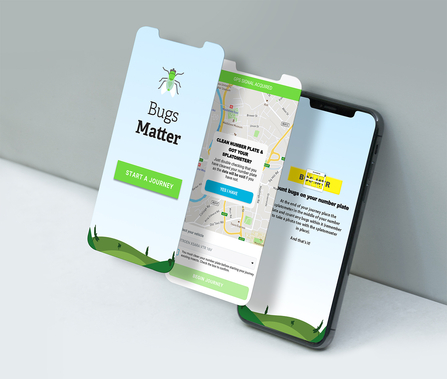An innovative app to survey insect populations has been launched by Somerset, Kent, Gwent and Essex Wildlife Trusts. The user-friendly Bugs Matter app brings meaningful citizen science to the pockets of thousands and will help wildlife organisations better understand how our insect populations are faring.
Smartphone users can take part by downloading the free Bugs Matter app. The concept is simple: before making an essential journey in a vehicle, clean the number plate and then when you reach your destination count the bugs squashed on the number plate using a ‘splatometer’ grid that will be posted to you. A photo and details are then submitted via the app. You don’t even need to be the driver of the vehicle you are travelling in (though you will need their permission).


